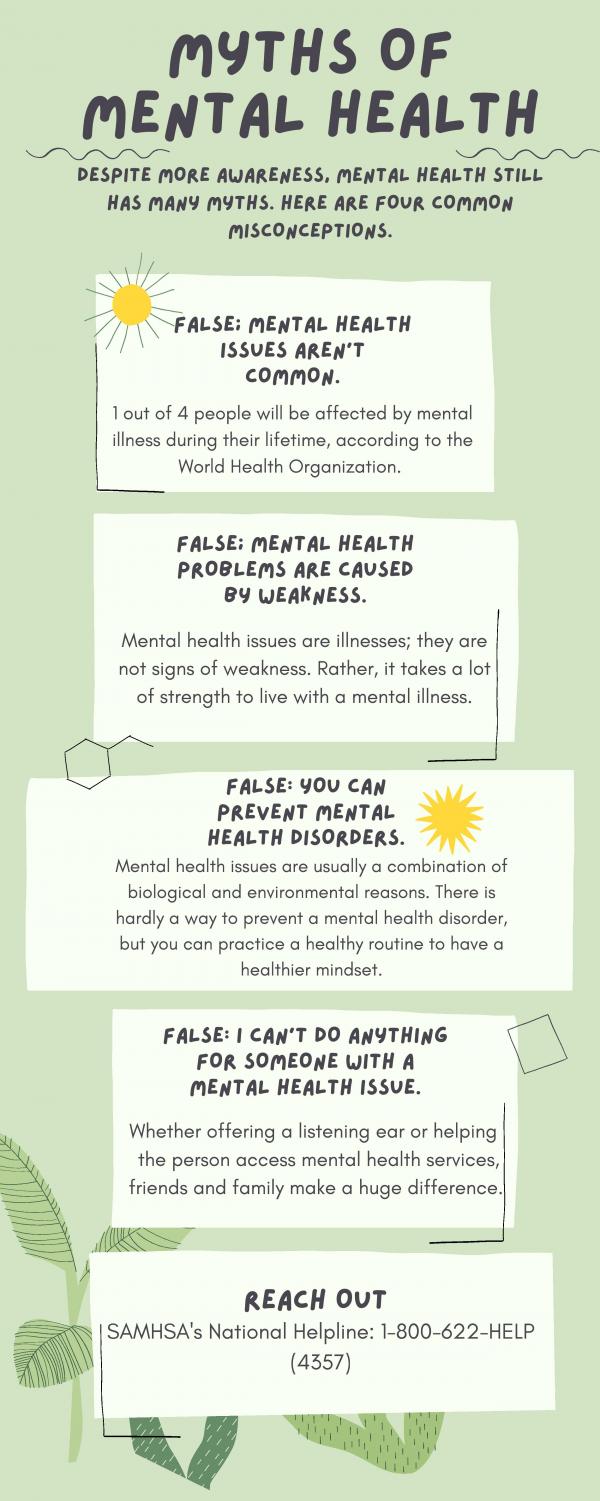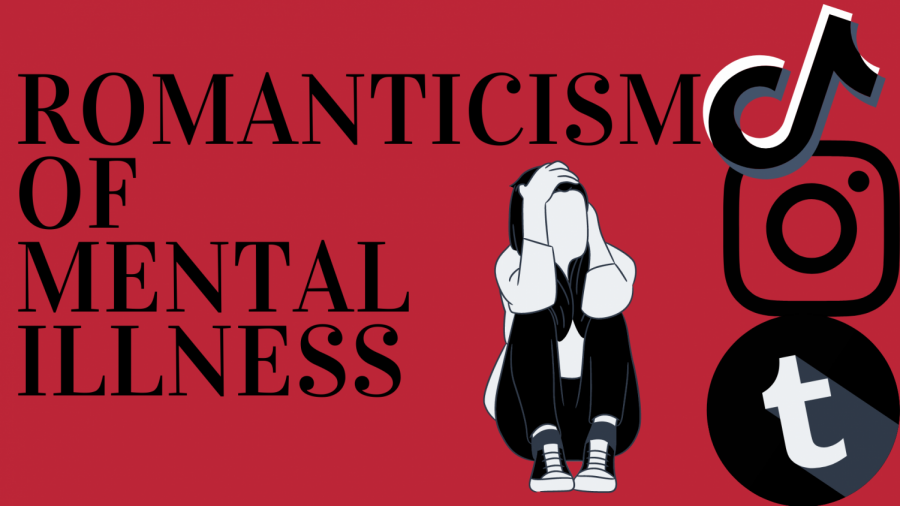Romanticizing Mental Health
May 1, 2021
Growing up with a mental illness is a blessing and a curse. As the saying goes, “too much of anything can be bad,” and the same philosophy applies to mental illness. I am diagnosed with ADHD, anxiety, and OCD, which stems from anxiety and depression. I have been going to a therapist for almost 8 years now, and I am medicated. Many people may now be wondering, “Why is she telling us this? Does she want us to feel bad for her?” And the answer is no. However, I do recommend reading on, this is just the beginning.
As Newton says, “with every action, there’s an equal and opposite reaction.” In my opinion, Newton’s 3rd Law applies to more than just energy and physics but with life in general. I believe blessings and curses can relate to this theory as well as when we realize something that can help us, can also hurt us. For example, if you are active you may be in great shape, however, you may also be putting your body under a lot of stress. The same principle applies to mental illness; my ADHD allows me to be alert and attentive, however, if there is more than one thing going on around me, my attention gets shared and it becomes hard for me to focus on the important task at hand. Additionally, my anxiety keeps me safe from doing stuff that could hurt me in the long run, but it often prevents me from enjoying the moment by flooding my brain with all the possible negative “what ifs” that could occur, and thus, causing me to miss out on much of the pleasure others around me seem to be experiencing. My OCD allows me to make sure I do my best work and give my best effort, but it also makes my daily tasks much harder in fear that something bad would happen if I do not hit a button 3 times, and it issues a fear of failure that has also complicated simple-seeming tasks, which hold me back multiple times. And finally, my depression. It is hard to see a blessing that comes from depression because the curses truly outweigh them. However, one blessing I have grown to understand is my ability to connect with people when they are having a rough day. It makes me more empathetic to others and allows me to understand the darker sides of the world. It does make me numb most of the time, but those small moments when I can feel things and relate to others and help them are beautiful. As beautiful as those moments are to experience, I would sacrifice them for a chance to wake up every day and look forward to life without the burden of mental illness. And, yet, I appreciate that my challenges have helped shape who I am by defining my character as someone proud of the obstacles I have overcome and willing to continue to learn from those I have not yet mastered. I can’t imagine a life without them. Everyone faces challenges. These are mine.

So the reason I am writing this article is to change the stigma around mental health. In today’s world, there are so many opinions surrounding the topic of mental health. Through the use of social media, I find that these illnesses and struggles are often either dismissed or romanticized.
On social media sites, such as Instagram, Tumblr, and TikTok, many people are making it seem like it is “cool” and “quirky” to have a mental illness. It romanticizes it through memes and making it sound like it is “tragically beautiful.” Although jokes are a way to handle trauma, the number of people using them and trying to make these serious illnesses seem like stuff to be grateful for because it makes you “unique” is extremely harmful. It not only lies about what mental illness is all about, but it invalidates people’s feelings and experiences. It allows for people who are experiencing the natural levels of worry and sadness that comes with being human and experiencing life’s challenges to feel that they have a mental illness when they do not. Again, back to the blessings and curses, it may allow for some people to realize they do have a problem but for the majority, it puts a false reality into their mind and therefore takes away the significance that these illnesses cause others. By normalizing mental illness in a way that seems to be a “cool” thing, it diminishes the impact and effect it has on those who struggle with it.
When these illnesses are being romanticized on social media they only project the way in which we all think mental illness behaves. For example, people romanticize depression by saying, “what a mood to just cry,” when in reality most people with depression do not cry often (including myself), in fact, more often than not, people with depression just feel numb. When they discuss OCD as an aesthetic and say, “I need everything to be nicely put away so it looks cute.” When in reality OCD is more than perfection. It is about doing something over and over again until it feels right, or the fear that if you don’t touch a computer key three times, you will feel awful and something bad will happen. Not everyone with OCD presents as an organized neatnik as evidenced by the state of my room, closet, drawers, and etc.
In conclusion, by making it seem like everyone struggles with a mental illness, you lose the weight and importance of it. If it seems “normal” no one will care to fix it. Therefore, it is important that when you discuss mental health you know what you are saying and are not using stereotypes or diminishing the challenges people who live with mental illness face everyday. Finally, I want to make it clear that because you have a mental illness does not mean you are weak. You are struggling and there is nothing wrong with that. By struggling, it proves that your body is still fighting, and as you fight you become strong.
